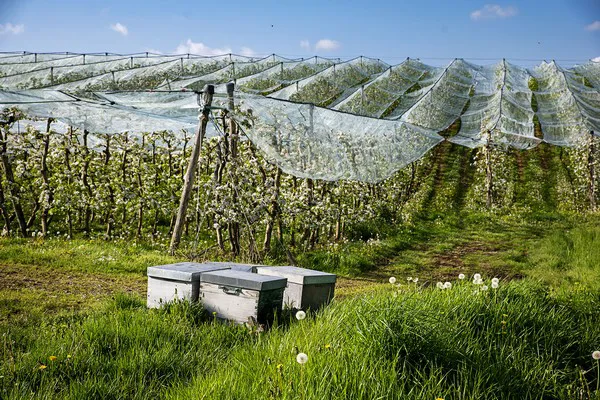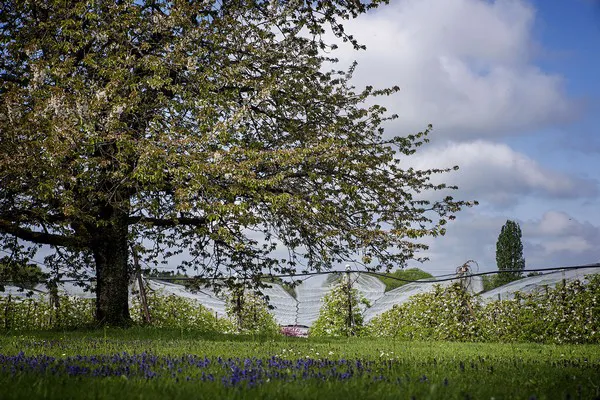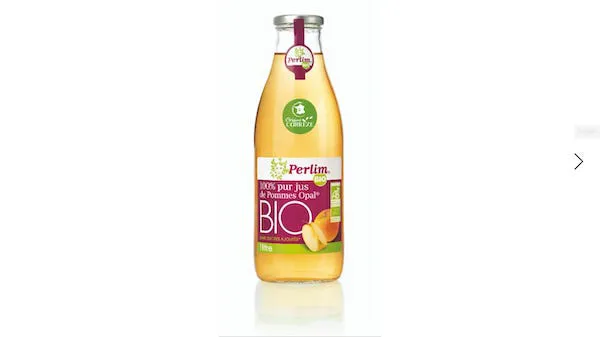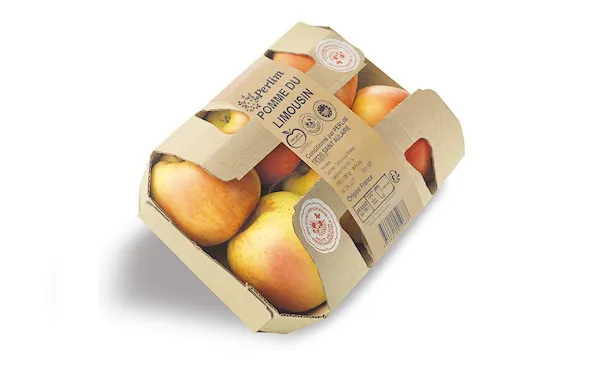As part of its CSR (Corporate Social Responsibility) approach, the Perlim Meylim Alliance is trying to reduce its losses in the orchard, as well as at the station.
The Alliance has therefore set up a diagnosis with an environmental consultant in order to see where it stands in terms of losses and food waste. “We have identified a volume of about 7% of our production that is left in the field. Then, once the apples arrive at the station, 80% of them are sold in category I, 10% in category II, 9% go for processing and 1% are turned into compost or animal feed. Some are also donated to associations,” explains Jessica Roussel, of the Perlim Meylim Alliance.

Limiting food waste in the orchard through analysis and reflection
Following this diagnosis, the Alliance has put in place some measures in order to limit its yield losses identified as food waste, within the orchard itself. “Each season, we compare the expected and final tonnage. We then try to understand, at annual meetings, why there is a discrepancy between the two pieces of data, in order to set up actions in the orchard to reduce these losses in the next harvest. This year for example, we know that the bad weather conditions are the reason for this gap. A factor which we could not control. The harvest was very heterogeneous, in terms of both plots and trees,” explains Béatrice Chauffaille, head of marketing and communication at Perlim and the Alliance.

Thanks to the new varieties
Limiting the losses in the orchard, especially due to weather hazards and climate change, necessarily requires working on the varieties and on orchard management. “We rely heavily on the new varieties such as Opal and Rubis Gold, which are more resistant to diseases. This allows us to reduce losses in the harvest and at the station. Other measures such as hail nets or irrigation are put in place to reduce the number of small calibers harvested,” explains Jessica Roussel.

Using social networks
Additionally, in order to facilitate the recruitment of seasonal labor at harvest time, the Alliance makes greater use of social networks. “10% of the apples left in the field are the result of a lack of labor. Especially in our region, it is sometimes difficult to find seasonal workers, even more so during this Covid-19 period. The platform “Des bras pour ton assiette” (“Arms for your plate”) helps us find local labor. We have also developed direct sales with social networks in order to promote local sales, and the sales of processed products such as apple juice. The Perlim Meylim Alliance makes its own organic juice, 100% pure juice from “Corrèze”.
Establishing a mature network through our orchard technicians
“In collaboration with our producers, the technical department carries out maturity analyses in the orchards in order to determine the most optimal harvest dates and to avoid late harvests that can affect quality.”
Limiting revenue losses at the station
100% of the production of the Alliance is used once it arrives at the station. The losses identified are therefore not related to matter, but to revenue. “Although the downgraded apples are processed into compotes and juices, they represent an economic loss for the Alliance. Therefore, we want to reduce these losses, by taking the above described actions in the orchards for example. We also train the employees at the station, with displays about the good practices to have.” explains Jessica Roussel.
“Other objectives in progress to reduce our losses include working with retailers to promote the downgraded products, small calibers and products with short shelf-life (close to the CSD or DDM).”
“The Covid crisis has made some issues emerge more vividly,” explains Béatrice Chauffaille, “one of them being the reduction of food waste through better management of the orchard, as well as new consumption behaviors regarding visual quality.”
For more information:
Jessica Roussel
Phone: +33 555 252 937
jessica@perlim.com
Béatrice Chauffaille
Phone: +33 555 252 930
beatrice@perlim.com
www.perlim.com
www.alliance-perlim-meylim.fr
Also on:


